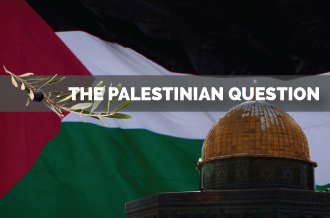Unconditional US support for the state of Israel has precluded a peace settlement and destabilised the Middle East.
Last updated: 21 Aug 2014 13:33
| ||
|
| ||
|
| ||

The Obama administration has increased the aid to Israel through its reliance on various special appropriations, write Falk and Ganji [EPA]
| ||
| In Part I of this article we described the reasons as to why Israel has become an outlaw state. In this part we discuss US support for Israel and its consequences. The US as Israel's servant The United States has supported Israel without reservations since its founding in 1948. According to an agreement between the two countries, that has become a law in the US, the US has committed itself to preserve Israel's strategic and military superiority in relation to other countries in the Middle East. From 1949 till today, the US has provided Israel with nearly $122bn in aid, calculated by reference to fixed dollars. Counting the aid to Israel in 2003 dollars, from 1949 - 2003 the US has provided Israel with $140bn worth of military assistance, which has been increasing since 2003. The basic annual commitment to Israel is $3.1bn, which is far more than military aid that has been given to any other country in the world, and this figure is an understatement, hiding a variety of supplemental appropriations and other benefits accorded uniquely to Israel. In effect, the US has been subsidising Israel's aggressions, and ignoring military assistance legislation that seeks to withhold such aid to countries that are not acting defensively and in accordance with international law. The Obama administration has even increased the aid to Israel through its reliance on various special appropriations. Most recently Congress appropriated an additional $225m for further development of the Iron Dome derence system. The US Senate has even approved a resolutionaccording to which if Israel attacks Iran's nuclear sites in the future defying international law, the US is obligated to help Israel. It reads in part, "If the Government of Israel is compelled to take military action in legitimate self-defense against Iran's nuclear weapons program, the United States Government should stand with Israel and provide, in accordance with United States law and the constitutional responsibility of Congress to authorize the use of military force, diplomatic, military, and economic support to the Government of Israel in its defense of its territory, people, and existence." Of course, the language as written of "legitimate self-defence" is understood to mean any action taken by Israel that is alleged to be "defensive", whether or not in conformity to international law, which limits such claims to situations of response to prior armed attacks. Among the many UNSC resolutions that seek to criticise or condemn Israel for its actions against the Palestinians, almost all have been vetoed by the US. In fact, the US government opposes virtually every resolution approved by any UN organ, including UN Human Rights Council (UNHRC), if it is deemed to be critical of Israel, and this includes even initiatives to establish fact-finding commissions of inquiry to determine whether charges of war crimes are well-founded. When Israel attacks the defenceless and completely vulnerable Palestinian people, the US justifies such high-intensity and disproportionate violence as "self-defence", obstructs the issuance of a UN call for an immediate ceasefire, and gives diplomatic and material aid and comfort to Israeli aggression from start to finish. After the fact-finding "Goldstone Report" on Israel war crimes in Gaza in 2008-2009 was approved by UNHRC, the US and Israel successfully intervened with the Secretary General to prompt him to urge the non-implementation of the report in relation to Israeli accountability for war crimes. The US government also used its leverage to prevent even the discussion of this important report in the UNSC. When recently, the UNHRC approved a resolution to investigate Israel's war crimes in Gaza, the US cast the only negative vote. Amnesty International has reported that the evidence of systematic attacks by Israel's military forces on schools and hospitals in Gaza during the current warfare is overwhelming. It includes targeting civilians who have sought shelter from Israeli attacks in United Nations schools and other buildings marked with the UN logo. Human Rights Watch has reported on evidence of intentional shooting of Palestinians who were fleeing their homes, even after they had been ordered to do so by Israel's military, and has declared such behaviour to be a war crime. We can only comprehend this partisan pattern of US policy toward Israel by taking account of the leverage exerted on the government by the formidable lobby working on behalf of Israel known. Former President Jimmy Carter and the former President of Ireland and former Head of the UNHRC Mary Robinson have condemned this one-sidedness of US policy toward Israel and Hamas, insisting that as a first step Israel immediately ends without conditions the blockade of Gaza, allowing the people of Gaza to have finally some semblance of a normal life. Consequences The US policy toward Israel has had dire consequences: It has completely discredited the US government's claim to act as an impartial arbitrator between Israel and the Palestinians. Hatred and resentment toward the US has been increasing throughout the region, not only because of its blind support of Israel, but also because of its military onslaughts against Iraq, Libya, and Afghanistan, and drone attacks in Pakistan, Yemen, Somalia, and elsewhere.
What Israel has done in the region with the support of the US has contributed greatly to the growth of extremism and discord throughout the Middle East. If such policies are not reversed even more chaos, extremist violence, bloodshed, and devastation are likely to emerge in the future. The Middle East and North Africa have been unstable for decades, and the consequences of the intensifying instability are spreading to other regions and endangering world peace. These policies of unconditional support for Israel are going against the US national interests. The Palestinian-Israeli conflict is the mother of all problems in the Middle East. Israel has undermined all efforts to find a peaceful solution by way of diplomacy. It has rejected both the Arab Initiative of 2002 and the roadmap proposed by the Quartet - the US, Russia, the European Union, and the UN - which require Israel to withdraw to its pre-1967 borders with the expectation that a sovereign and independent Palestinian state would emerge. What is required of Israel as a precondition for peace - set forth in Security Council Resolution 242 and reaffirmed since its unanimous adoption in 1967 - enjoys support worldwide. It should be understood that ending the occupation of the Palestinian territories is not by itself sufficient to achieve a sustainable peace. Of paramount importance is also some arrangement that acknowledges the rights of several million Palestinian refugees who were forcibly expelled over the course of many years from Israel, most dramatically in the 1948 Nakba, the Palestinian national catastrophe. There are also serious questions at this time as to whether the two-state solution is a viable and desirable goal, if it ever was. The question of Palestinian self-determination as the proper foundation for a sustained just peace is more open to debate and reflection in 2014 than ever before. Israel's expansionism has put the international two-state consensus under question, and the international community, along with representatives of the Palestinian people must now consider new ways to achieve a just peace for both peoples, which cannot be realised without upholding Palestinian rights. We believe that a crucial step in this direction is the widespread acknowledgement that Israel has become an outlaw state, and that appropriate adjustments to this reality must be made. Richard Falk is Albert G Milbank Professor Emeritus of International Law at Princeton University and Research Fellow, Orfalea Center of Global Studies. He is also Former UN Special Rapporteur on Palestinian human rights. Follow him on Twitter: @rfalk13 Akbar Ganji is one of Iran's leading political dissidents and has received over a dozen human rights awards for his efforts. Imprisoned in Iran until 2006, he is the author of The Road to Democracy in Iran, which lays out a strategy for a non-violent transition to democracy in Iran. Follow him on Twitter: @GanjiAkbar |









No comments:
Post a Comment